Cucumbers are among the most versatile and refreshing vegetables people enjoy worldwide. They are often associated with being long and cylindrical in shape, but did you know that cucumbers can also be round?
The round variety of cucumbers is lesser-known but equally delicious and nutritious. We will explore all there is to know about round cucumbers, from their origins to their unique features. Many people are unfamiliar with cucumbers, assuming that all cucumbers are round the same shape.
However, round cucumbers have been cultivated for centuries and have a distinct history and cultural significance in various parts of the world. With their smooth, symmetrical shape and vibrant green color, round cucumbers are visually appealing and can be used for various culinary purposes. They are crisp and juicy and have a milder flavor compared to theirs.
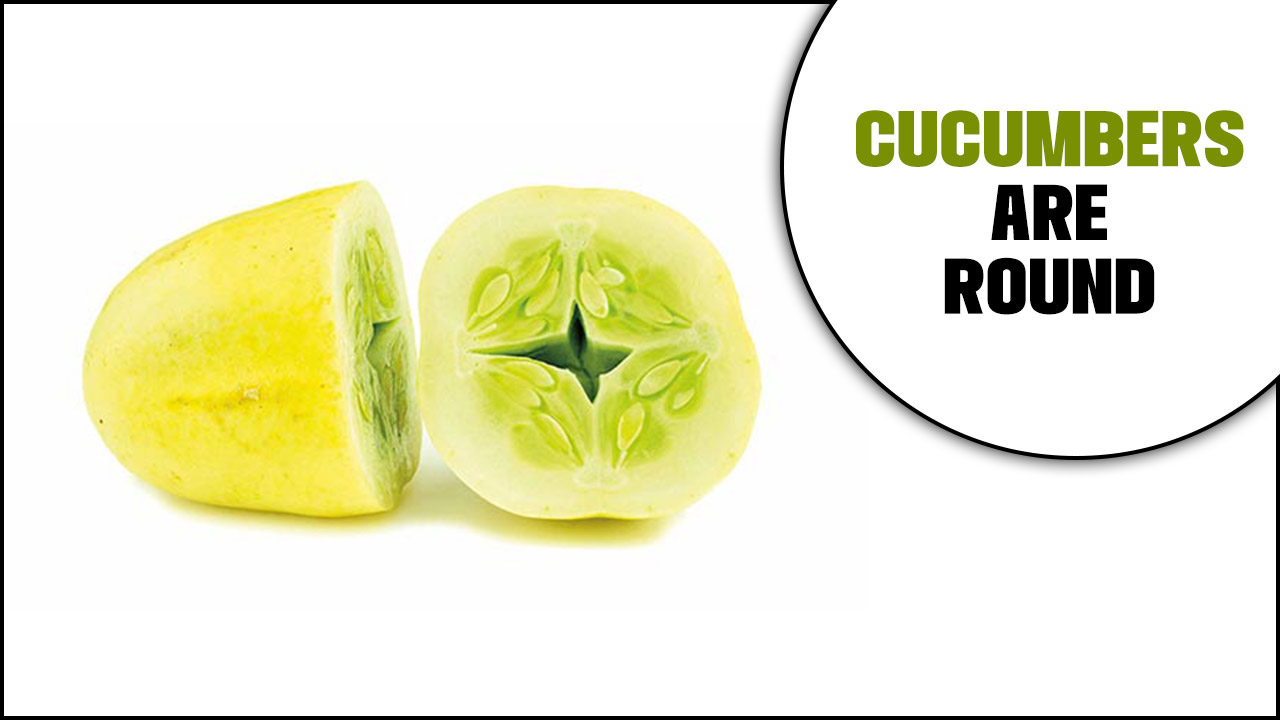
Why Some Cucumbers Are Round – Behind The Science
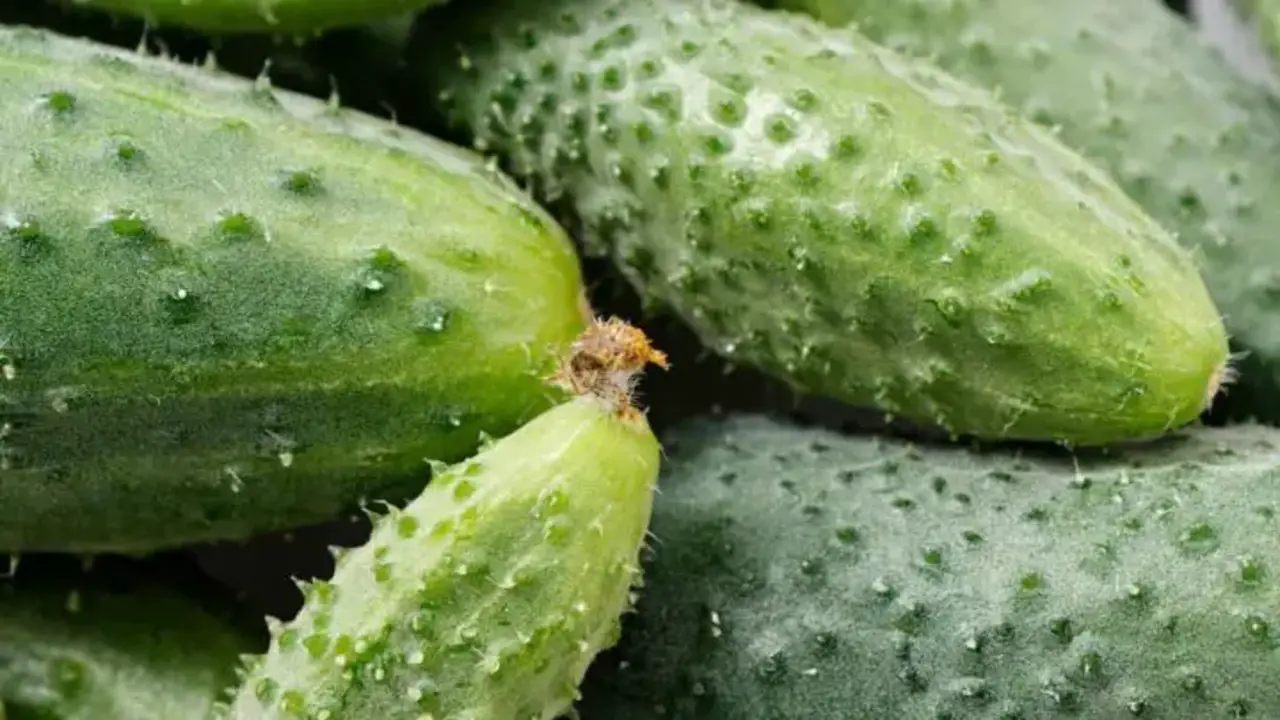
It is important to know why some cucumbers are round because it can affect the vegetable’s taste, texture, and appearance. Round cucumbers tend to have thicker skin, making them crunchier and more flavorful than their elongated counterparts.
They also have a higher water content, making them more refreshing and hydrating. Additionally, the round shape of the cucumber can make it easier to slice and dice for salads and other dishes.
Knowing the reason behind the roundness of certain cucumbers can also provide insight into the biology and genetics of the vegetable. For example, some cucumbers are naturally round due to a genetic mutation, while others are bred to have a round shape for specific culinary purposes.
The Origin Of Cucumbers
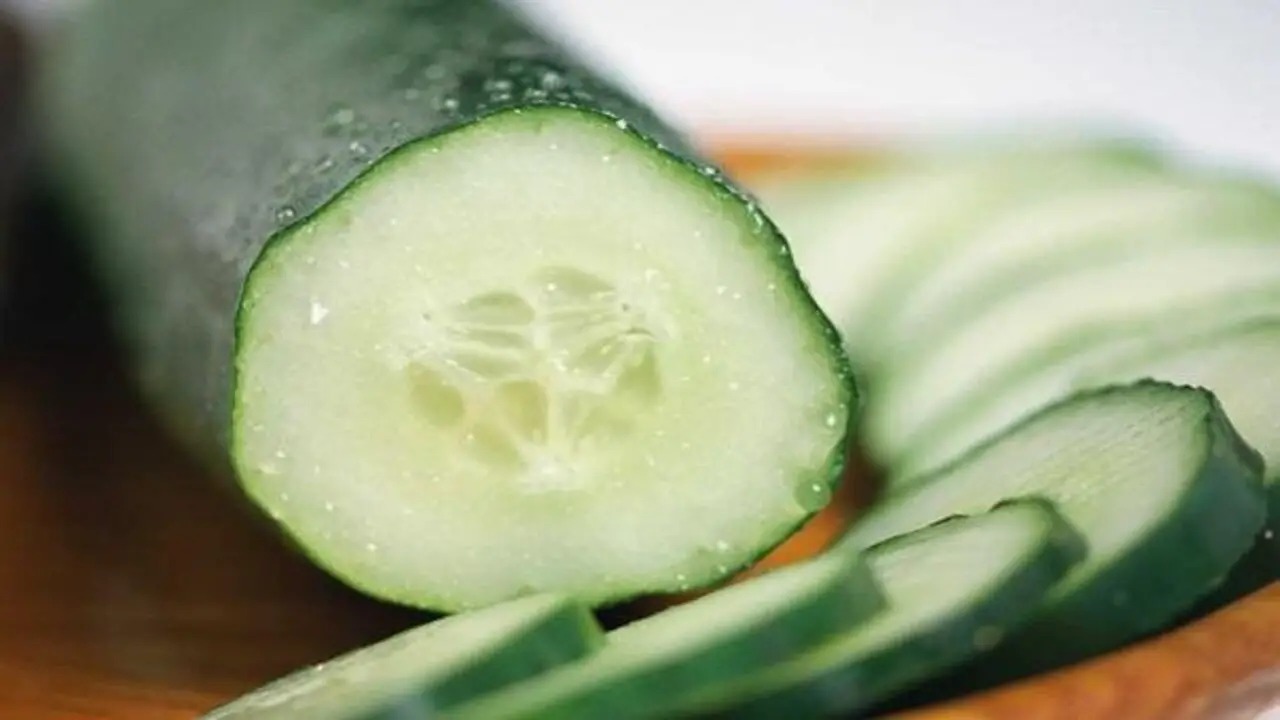
The origin of cucumbers can be traced back to ancient civilizations in India and Greece. Cucumbers were highly prized for their cooling and hydrating properties and were commonly used in Ayurvedic medicine to treat various ailments.
The Greeks also valued cucumbers for their health benefits and included them in their daily diet. Cucumbers were believed to be introduced to Europe during the Roman Empire and later brought to North America by European settlers.
Today, cucumbers are grown worldwide and are a staple in many cuisines. They are versatile vegetables that can be eaten raw in salads or pickled for a tangy and crunchy snack. Cucumbers are also rich in vitamins and minerals and are a great source of hydration due to their high water content.
Understanding Cucumber Varieties
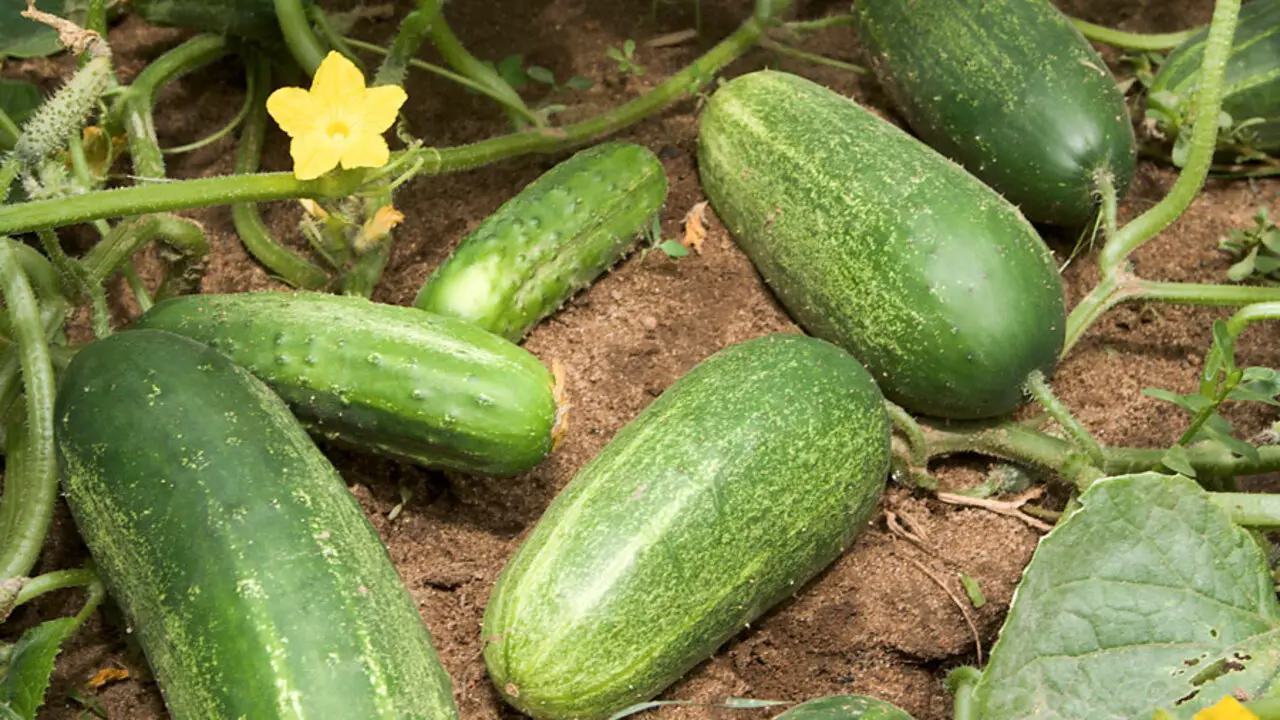
Understanding cucumber varieties is essential for anyone interested in growing or consuming these versatile vegetables. There are several types of cucumbers, each with unique characteristics, flavors, and uses. The most common cucumber varieties are slicing, pickling, and English cucumbers.
Slicing cucumbers are large, thick-skinned, and usually used for salads or sandwiches. Pickling cucumbers are smaller, thinner-skinned, and ideal for vinegar or brine preservation. English cucumbers are long and slender with thin, delicate skin, making them perfect for slicing into salads or using in cucumber sandwiches. Other cucumber varieties include lemon cucumbers, Armenian cucumbers, and Japanese cucumbers.
1.Round Cucumbers
Cucumbers are often considered long and cylindrical, but did you know they can also be round? That’s right – round cucumbers are a unique variation of this beloved vegetable that is less common but just as delicious.
Exploring round cucumbers can open up a whole new world of culinary possibilities. You can slice them up for a refreshing snack, add them to salads for texture, or even pickle them for a tangy twist on a classic condiment.
Round cucumbers are also a great option for stuffing, as their shape allows the perfect vessel to hold your favorite filling. But how exactly do round cucumbers differ from their more common counterparts? For starters, they tend to be smaller and have thicker skin.
2.Long Cucumbers
Long cucumbers have always been a popular choice among vegetable enthusiasts. They are versatile, nutritious and delicious. However, have you ever considered exploring cucumbers that are round in shape? While long cucumbers are the most common variety.
You can enjoy round cucumbers, also available in the market, in various ways. Round cucumbers taste slightly different than their longer counterparts, with a slightly sweeter and milder flavor. They also have a different texture, with crisp and crunchy flesh that can be refreshing on a hot summer day.
They are great for snacking, adding to salads, or even pickling. People often overlook round cucumbers in favor of their longer counterparts, but they should explore their unique taste and texture. They are also a great option for those who may find the longer cucumbers difficult to handle or slice.
3.Burpless Cucumbers
When it comes to cucumbers, one of the most popular varieties is the burpless cucumber. People know these cucumbers for their mild flavor and lack of bitterness. Making them a favorite among consumers who enjoy fresh, crisp produce. Burpless cucumbers are particularly popular in salads and as a healthy snack.
While many people are familiar with the traditional elongated shape of cucumbers, many different shapes and sizes exist to explore. One unique type of cucumber is the round cucumber.
As the name suggests, these cucumbers are round in shape rather than the typical oblong shape of most cucumbers. Round cucumbers are often smaller than traditional ones, making them perfect for adding to salads or snacking on the go.
The Science Behind Round Cucumbers
The Science Behind Round Cucumbers is a fascinating topic that has caught the attention of many curious minds. It is essential to know the reason behind the peculiar shape of cucumbers as it has significant implications for farmers, scientists, and consumers.
The shape of cucumbers is not just a matter of aesthetics but the result of scientific processes that occur during their growth and development. Understanding the science behind round cucumbers can help farmers produce better yields and more uniform crops, increasing profits.
Furthermore, scientists can use this knowledge to breed cucumbers with desirable traits, such as disease resistance, improved flavor, and longer shelf life. Consumers can also learn the science behind round cucumbers, which can help them make informed decisions when selecting produce.
1.Genetic Factors
Genetic factors play a crucial role in determining the shape and size of cucumbers. While most cucumbers are cylindrical in shape, some are round. Scientists believe that specific genes control the growth and development of cucumbers, resulting in their round shape.
Scientists have explored these genetic factors to understand better what makes cucumbers round. They have found that certain mutations in the genes responsible for fruit shape can lead to the development of round cucumbers. These mutations can alter the fruit’s growth and form, resulting in a more spherical shape.
Additionally, environmental factors such as temperature and humidity can also affect the shape of cucumbers and alter the expression of these genes. Understanding the genetic and environmental factors that influence cucumber shape can significantly affect agriculture and food production.
2. Environmental Influence
The environment has a significant influence on the shape and size of cucumbers. By exploring cucumbers, we can observe that they are often round due to the environmental factors that shape them. For example, the amount of water and sunlight a cucumber plant receives can greatly affect the shape and size of the cucumber it produces.
If a cucumber plant receives adequate water and sunlight, it is likely to produce round cucumbers. On the other hand, if a cucumber plant is not receiving the proper amount of water or sunlight, it may produce misshapen cucumbers that are not as round or symmetrical. Additionally, the type of soil and nutrients in which a cucumber plant is grown can also impact the shape of the cucumbers it produces.
3.Pollination And Fertilization
Pollination and fertilization play a crucial role in the growth and development of plants. Cucumbers, for instance, are round fruits that rely on pollination to fertilize their ovules and produce seeds. Bees generally pollinate these fruits, which transfer pollen from the male flower to the female flower, allowing them to fertilize.
Without proper pollination, cucumbers may not develop properly and produce fewer seeds. In addition to pollination, fertilization is also important for the growth of cucumbers. Fertilizers provide essential nutrients that help cucumbers grow faster and healthier.
They contain nitrogen, phosphorus, and potassium, among other nutrients that cucumbers need to thrive. Fertilizers can be added to the soil during planting or throughout the growing season to ensure that the plants have adequate nutrition.
4.Growth Conditions
People love cucumbers for their refreshing taste and crunchy texture. When exploring cucumbers, it is interesting to note that they are round in shape and can grow in various conditions. Cucumbers are versatile plants that can thrive indoors and outdoors, depending on the desired growth conditions.
Some gardeners prefer to grow cucumbers in a greenhouse setting, where they can control the temperature, humidity, and light levels to promote optimal growth.
Others may choose to grow cucumbers outdoors in a garden bed or container, where they can benefit from natural sunlight and rainwater. Cucumbers require consistent watering and fertilization regardless of the growth conditions to produce a bountiful harvest.
Advantages And Disadvantages Of Round Cucumbers
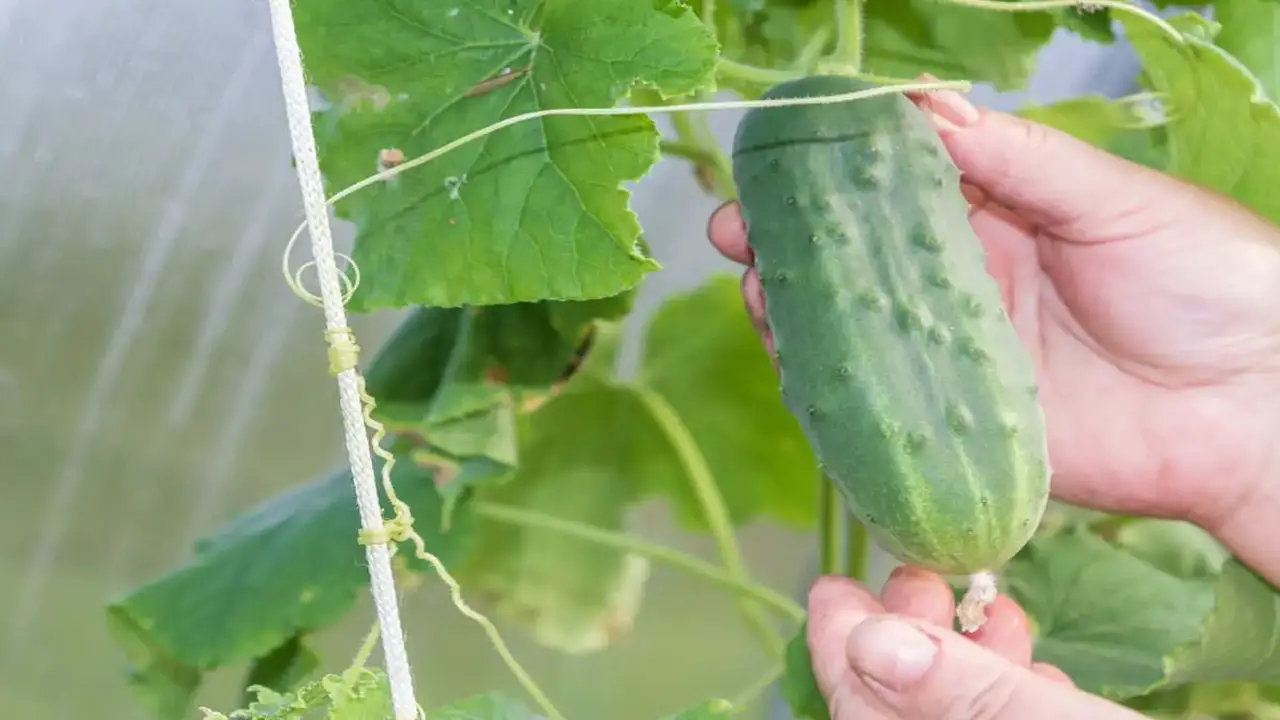
Knowing the advantages and disadvantages of round cucumbers is essential for anyone who wants to make informed decisions about purchasing and consuming this type of produce. Round cucumbers are popular for their unique shape, making them more visually appealing and easier to store than traditional cucumbers.
However, they also have some potential downsides that consumers should be aware of. One advantage of round cucumbers is their versatility in cooking, as they can be sliced and used in salads, sandwiches, and other dishes, just like regular cucumbers.
Small gardens or urban environments with limited space find them ideal due to their compact size. However, one disadvantage is that they may not be as nutrient-dense as traditional cucumbers, as they often have higher water content and lower levels of vitamins and minerals.
1.Advantages
There are many advantages to exploring the world of cucumbers. These versatile vegetables come in all shapes and sizes, but one of the most common types is the round cucumber. Round cucumbers offer a number of benefits for both cooking and snacking.
Their shape makes them easy to slice into rounds, making them perfect for adding to salads or sandwiches. Round cucumbers also have a crisp texture that makes them great for snacking or dipping in hummus or other dips. In addition to their culinary uses, cucumbers also have several health benefits.
They are low in calories and water content, making them a great choice for those looking to maintain a healthy weight. Cucumbers are also rich in vitamins and minerals, including C, K, and potassium. They are also a good source of antioxidants, which can help protect the body against disease and illness.
2.Disadvantages
Exploring cucumbers can be a fascinating experience, but there are also a few disadvantages. For starters, the shape of cucumbers can be a bit of a challenge for some. Unlike other relatively uniform vegetables, cucumbers are round and can be difficult to cut into evenly sized pieces.
This can make them a bit trickier to prepare for salads or other dishes where presentation is important. Another potential disadvantage of exploring cucumbers is that they can be prone to spoilage if not stored properly.
Cucumbers are quite perishable and can quickly develop mold or bacteria if left at room temperature for too long. It is important to store cucumbers in the refrigerator and use them within a few days of purchase to avoid this issue.
The Global Impact Of Cucumber Shape
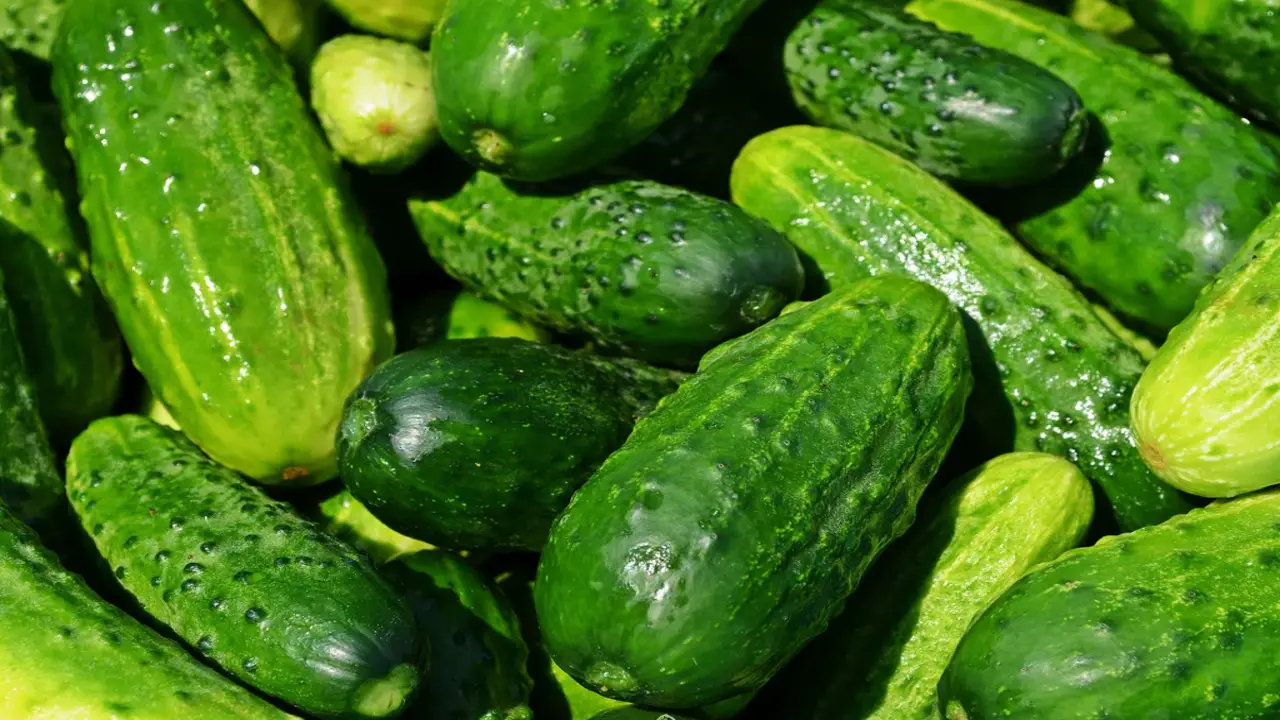
The shape of cucumbers may seem trivial, but it has a global impact on the agriculture industry and the economy. People traditionally grew and consumed cucumbers in their round shape for many years. However, with the rise of international trade and demand. For uniformity, cucumbers began to be genetically engineered to be more elongated and straight.
This change in shape allowed for more efficient packaging and transportation, which increased farmers’ exports and profits. However, this global trend towards straight cucumbers also led to declining traditional varieties and losing genetic diversity.
Despite the benefits of straight cucumbers, there is a growing movement to preserve the traditional round cucumbers and their cultural significance. People in Japan still highly prize round cucumbers and even use them in traditional tea ceremonies. In Ayurvedic medicine, people in India use round cucumbers for cooling properties. Additionally, traditional varieties of cucumbers.
Interesting Facts About Cucumbers
People worldwide commonly consume cucumbers as one of the most popular vegetables. They are a rich source of vitamins and minerals, and their refreshing taste makes them a great addition to salads and sandwiches.
But did you know that cucumbers have some interesting facts associated with them? For instance, did you know that cucumbers are round? Yes, that’s right. Grocery stores offer various shapes and sizes, but round cucumbers are the most common.
Another interesting fact about cucumbers is that they are fruits! Cucumbers belong to the same family as pumpkins, zucchinis, and watermelons, which all technically fall under the fruit category. Also, cucumbers have a high water content, making them an excellent natural hydrator. Cucumbers contain about 96% water, making them one of the most hydrating vegetables.
The Future Of Cucumber Farming
The future of cucumber farming looks promising as the demand for fresh produce continues to rise. With innovative techniques and technology, farmers can increase their yield and produce cucumbers all year round.
Furthermore, exploring cucumbers being round rather than the traditional elongated shape has opened up new opportunities for cultivation and packaging. These round cucumbers look aesthetically pleasing and pack more efficiently, reducing waste and shipping costs. In addition, they have a longer shelf life and are less prone to bruising, meaning they can withstand longer transportation times without compromising on quality.
Cucumbers are becoming increasingly popular as consumer preferences shift towards healthier, more sustainable options. Not only are they a low-calorie snack, but they are also rich in antioxidants and vitamins.
Conclusion
Exploring why some cucumbers are round reveals fascinating insights into the intricate world of plant genetics and environmental influences. Although not as prevalent as their elongated counterparts, round cucumbers captivate consumers with their unique appearance and slightly sweeter taste.
The science behind their shape involves specific genes that regulate growth and factors like pollination, fertilization, and growth conditions. Ultimately, exploring the world of round cucumbers sheds light on a unique aspect of horticulture and reminds us of the intricate beauty and complexity present in the natural world around us. As we continue to explore and celebrate these wonders, we are inspired to preserve and protect the biodiversity that sustains our planet and enriches our lives.
FAQ
1.What Makes Some Cucumbers Round In Shape?
Ans: Round cucumbers have a specific genetic makeup that regulates their growth, leading to their spherical form. Breeders have specifically bred round cucumbers for their unique appearance, although most are oblong or cylindrical.
2.Are Round Cucumbers A Naturally Occurring Variety?
Ans: Yes, round cucumbers are naturally occurring, shaped by genetic and environmental factors. They are popular for pickling, salads, and snacks due to their uniform shape and size. However, it is important to note that many other cucumber varieties come in different shapes and sizes and are not all round. Such as the long and slender English cucumber.
3.Do Round Cucumbers Taste Different From The Traditional Long Ones?
Ans: Yes, round cucumbers often taste slightly sweeter than long ones, appealing to certain palates. They are also great for slicing into uniform rounds for salads or pickling. Additionally, the round shape of cucumbers makes them easier to fit into containers and storage bags, maximizing space in your fridge or pantry.
4.How Do Environmental Factors Influence Cucumber Shape?
Ans: Environmental conditions such as sunlight, water, and temperature fluctuations can impact cucumbers’ shape during their growth and development. Different cucumber varieties may exhibit different shapes, ranging from perfectly round to slightly oblong or even curved.
5.Are Round Cucumbers Better Suited For Certain Culinary Applications?
Ans: Round cucumbers are ideal for pickling due to their size and uniform shape, while long cucumbers are commonly handy for slicing and adding to salads. In addition, round cucumbers have a thicker skin which helps them retain their crunchiness even after pickling. They are also easier to pack into jars, making them a popular choice for home canning enthusiasts.